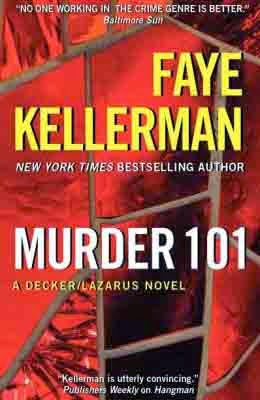What makes this special? The fact that the documents belonged to Leonard Elmore.
The following article appeared in Columbia, SC, weekly newspaper Free Times:
USC Scores Collection of Crime Writer Elmore Leonard
By Rodney Welch
Elmore "Dutch" Leonard was a true son of Detroit, but this week Columbia became the eternal resting place for his literary legacy. At a Wednesday ceremony at Hollings Library, USC President Harris Pastides announced that the university had acquired the complete archive of Leonard, who died in August of last year at 87. The university would not disclose the cost of the acquisition.
Besides all of his published work, the collection includes over 450 drafts of Leonard's novels, short stories and screenplays. The collection also includes appointment books, research files, letters, photographs, director's chairs from movie sets, many awards, his desk, typewriters--and even some Hawaiian shirts and a pair of sneakers.
The collection covers a 60-year writing career that spans Westerns--including the screenplays for films like Hombre, 3:10 to Yuma and Joe Kidd--to crime fiction, where he made his name with novels such as Swag, LaBrava, Get Shorty, Rum Punch and Maximum Bob, among many others. Many of these drafts can be seen under glass at the Hollings Library, such as the handwritten draft on yellow legal paper of his oft-quoted "Ten Rules of Writing." (Rule One: Never open a book with weather.)
 |
| Elmore Leonard 1925-2013 |
"Certainly, he's one of the most significant and influential writers of the second half of the twentieth century," said longtime crime and mystery editor Otto Penzler, who was at Wednesday's ceremony. "The number of very accomplished mystery writers who have tried, to some degree, to emulate Duch's style--in terms of quick, punchy dialogue, leaving out the parts people tend to skip, and that sort of thing, is enormous," Penzler said. "Almost everybody now, to some degree, has been influenced by Elmore Leonard and his style of writing."
One such devotee is writer-director Daniel Schechter, who found Leonard a deeply cinematic writer, which proved beneficial when Schechter made the recent Life of Crime, starring Jennifer Aniston, based on Leonard's novel The Switch. "It felt like I was given not just a good book, but a great script by Elmore Leonard.:
So just how did the university snag the collection? Because USC Dean of Libraries Tom McNally went after it, and Leonard liked what the university had to offer. When McNally first made inquiries, he half-expected that the well-heeled Ransom Center at the University of Texas at Austin--which has the manuscripts of everyone from James Joyce to David Foster Wallace--had already snapped up the rights.
 |
| Called "Dutch," Leonard had his own director's chair at filmings |
"Elmore's big statement was 'I don't care about posterity, I care about now," said his longtime researcher Greg Sutter. Sutter, who has been putting the archive into shape for some time, said there were extensive talks with Michigan State Univesity in Lansing. But while Sutter was thinking Michigan, Leonard started getting calls from McNally.
"I called him every other week," McNally said. "I got to know him, started talking to him about his collection coming, asked him to come down as a speaker. I told him we wanted to give him the Thomas Cooper Society Medal."
Sutter was already familiar with USC. He had visited in 2006 for the university's exhibit in honor of crime writer George V. Higgins, and thought of it as a model for a future Leonard retrospective. While the Higgings collection would turn out to have a major impact on Leonard's decision to leave his papers with USC, Leonard's son Peter said Wednesday that his father was a little leery of the award.
"I said 'Do you know who has received this award?" Peter recalls asking. "John Updike, Norman Mailer, William Styron." Elmore said 'I don't write like them.' I said, 'It doesn't matter. This is a prestigious thing.' " Elmore and Peter Leonard and Sutter arrived for the ceremony in May of last year, and the writer liked both USC and Columbia--especially the restaurant Saluda's.
"He loved the fact that they had grits and pork belly on the menu," Peter Leonard said. His father, who was born in New Orleans, grew up on Southern cooking What really sealed the deal, though, was Leonard's tour of the Irvin Rare Book Library, when Leonard saw that the university housed the works of the two writers who influenced him more than anyone else: Ernest Hemingway and Higgins.
Hemingway collector Edgar Grissom, who donated his archive to the university in 2012, showed Leonard the first editions of Hemingway. "Then Edgar pulled out a manuscript of For Whom the Bell Tolls," Peter Leonard said, "and I could see my dad's eyes light up."
 |
| Yes, I know smoking is harmful, but I had to share this author photo of Elmore Leonard. |
The destination of his archive was now clear. "There was Hemingway, there was Higgins, and I think all of these things just had an impact," Peter Leonard said.
"He was swept away," McNally said, "by the collections, and what we're trying to do here in this library. We don't have all the money that the Ransom Center has, but we take a real personal approach with our writers. We make a real commitment to them, that we're not just going to take the collections and put them on a dusty shelf and forget about them."
On the plane back home, Peter Leonard asked his father what he thought of South Carolina. "That's where I want my papers to go," he said.
 |
| Some of Elmore Leonard's works |
Peter Leonard, who is also a novelist, admits South Carolina is not the first place you think of a writer whose novels are neck-deep in the crime and corruption of inner-city Detroit. "Friends of mine have said, 'Why South Carolina?' Because it doesn't really make a lot of sense until you know everything."
"It's kind of hard, when you're a favorite son of Michigan, to leave it," Sutter said. "It's not that they didn't have the facilities or the energy to do it. This university is dedicated to creating multiple collections in crime fiction and this acquisition is only going to help them get more."
"I didn't know he had any particular connection to the University of South Carolina," said Penzler. "But I couldn't think of a greater library for those papers to go to. The fact he's associated with Hemingway and Fitzgerald and other significant American writers, I think really does show the level of respect and admiration that Elmore Leonard is getting and richly deserves."
The above is printed in full with permission.
www.free-times.com/blogs/usc-scores-collection-of-crime-writer-elmore-leonard-101614
For more, go to:
www.elmoreleonard.com
I wanted to share this with SS readers, but please don't think I "copped out" by simply copying and pasting Mr. Welch's feature story. Since that frequently distorts format on SleuthSayers, I typed it out word-by-word. I tried to remain true to the article, but if there are any typos, please be assured they are mine, not Mr. Welch's. Since I live very near Columbia, SC, if any of you come to SC to see the collection, let me know and I'll take you out to eat some grits and pork belly.
Until we meet again, take care of . . . you.







































